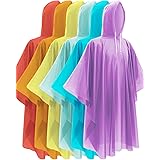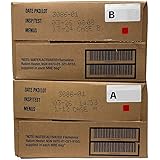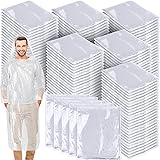Financial Independence
Understanding the Cost Benefits
When I first dove into self-reliant living, the potential for saving money was a huge draw. Because let’s be real, who doesn’t want to keep more cash in their pocket? By growing my own food and cutting out the grocery bills, I quickly began to see the financial benefits unfold. Plus, it’s not just about food; it’s also saving on utilities and other household expenses that can really add up.
From my personal experience, there’s something pretty satisfying about harvesting my own vegetables. Not only does it cut costs, but it also means that I know exactly what’s going into my meals. I can avoid those overpriced organic labels and just grow it all myself. You’d be amazed at how much you can grow in a small backyard or even on a balcony!
Financial independence isn’t just about what I save; it’s about the skills I’m gaining too. Fixing things around the house, cooking from scratch, and learning to barter with neighbors have opened up new avenues for income. I even trade homemade jams for fresh eggs – and it feels good to support my local community!
Environmental Benefits
Lowering My Carbon Footprint
Another reason I’ve embraced self-reliant living has to do with the environment. Every step I take to reduce my reliance on industrial food systems feels like I’m doing my part to help our planet. When I plant a garden, I not only produce food, but I’m also reducing packaging waste and the carbon emissions associated with transporting food across the country.
Plus, learning skills like composting has helped reduce my household waste significantly. Instead of just tossing scraps in the trash, I turn them into nutrient-rich soil for my garden. It’s amazing how many people forget about this simple act that can make a world of difference!
And let’s not forget the joy of creating a habitat for wildlife. By planting native species and creating a little backyard habitat, I’ve not only made my home greener but also helped support local ecosystems. It’s empowering to know that I’m making a positive impact each day!
Resilience to Economic Changes
Adapting to Uncertain Times
Self-reliance gives me a solid sense of security in uncertain economic times. With fluctuating job markets and unpredictable inflation, it’s super comforting to know I have resources I can rely on. I’ve seen too many friends stressed about the rising cost of living, while I’ve managed to keep my stress levels down by being prepared.
By growing my own food and learning how to preserve it, I ensure I have a consistent food supply regardless of economic shifts. This kind of self-sufficiency makes me feel empowered rather than helpless in the face of challenges. Knowing how to adapt is key, and I feel like I’ve got skills that can carry me through anything.
== > What if ... Get a FREE Subscription to PREPARE
Additionally, having a stash of emergency supplies and knowledge about foraging and herbal remedies keeps me prepared. The learning curve can be steep, but every new skill I pick up adds to my resilience. I can tackle life’s uncertainties head-on, and that gives me a sense of freedom that is simply priceless.
Healthier Lifestyle Choices
Focusing on Nutrition
The health benefits of self-reliant living have been a game changer for me. Cooking with fresh, homegrown ingredients has completely transformed my diet. I noticed almost immediately how much better I felt after cutting out processed foods and opting for meals I prepared from scratch. There’s just something wholesome about knowing exactly where your food comes from.
Plus, taking up gardening also got me outside and moving! I’ve never been much of a gym person, but digging in the dirt and getting my hands dirty turned into a great workout. It’s a win-win situation where I’m not only growing food but also cultivating a healthier body and mindset.
And let’s not ignore the mental health aspect! Engaging with nature and tending to a garden has been therapeutic. It’s my escape from the hustle and bustle, and spending time outdoors fosters a sense of peace and connection with the earth. I truly believe that self-reliant living has elevated my overall quality of life.
Building a Stronger Community
Creating Connections through Shared Interests
Self-reliance doesn’t just help me; it also enhances the community around me. Embracing this lifestyle has opened the door for me to connect with neighbors and fellow enthusiasts. Whether it’s through community gardens or local barter networks, I feel more integrated into my community than ever before.
I’ve made friends by trading produce, sharing canning recipes, and offering DIY workshops in my backyard. There’s an undeniable spirit of camaraderie that comes from sharing knowledge and resources. It’s heartwarming to see how people come together to support each other in this self-reliant journey.
Moreover, this shared passion encourages us all to look for sustainable practices that benefit everyone. From neighborhood chickens to community composting, we’re creating a local food system that strengthens bonds and fosters a sense of belonging. Honestly, it’s a beautiful thing to be part of something that supports both individual growth and collective strength.
Conclusion
In conclusion, exploring self-reliant living as a long-term strategy has enriched my life in countless ways. Financial independence, positive environmental impacts, increased resilience, healthier choices, and stronger community ties are just some of the benefits I’ve discovered on this journey. If you’re considering this path, I highly encourage you to embrace it! You might just find it leads to a life that feels more fulfilling, connected, and purposeful.
FAQ
1. What are some easy ways to start living more self-reliantly?
Start small by growing herbs on your windowsill or learning basic cooking skills. Gradually add more practices, like composting or sewing, to your routine!
2. Do I need a lot of space to be self-reliant?
Nope! Many self-reliant practices can be done in small spaces. Container gardening and apartment-friendly DIY projects are just a few examples.
3. Is self-reliant living expensive?
It can be an investment upfront, but many self-reliant practices save money in the long run, like growing your own food or learning to fix things around the house.
4. How can I connect with others interested in self-reliance?
Look up local gardening clubs, community workshops, or online forums. Sharing knowledge and experiences is part of the fun!
5. What if I don’t have any gardening skills?
Everyone starts somewhere! There are tons of resources online, including videos and blogs, to help you learn the basics of gardening and more.






